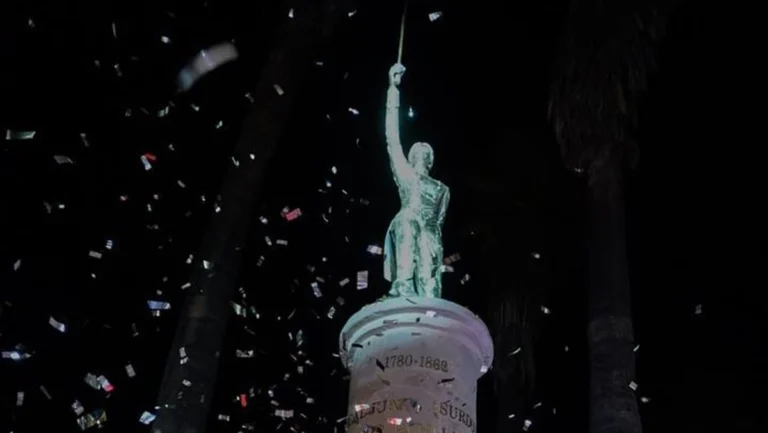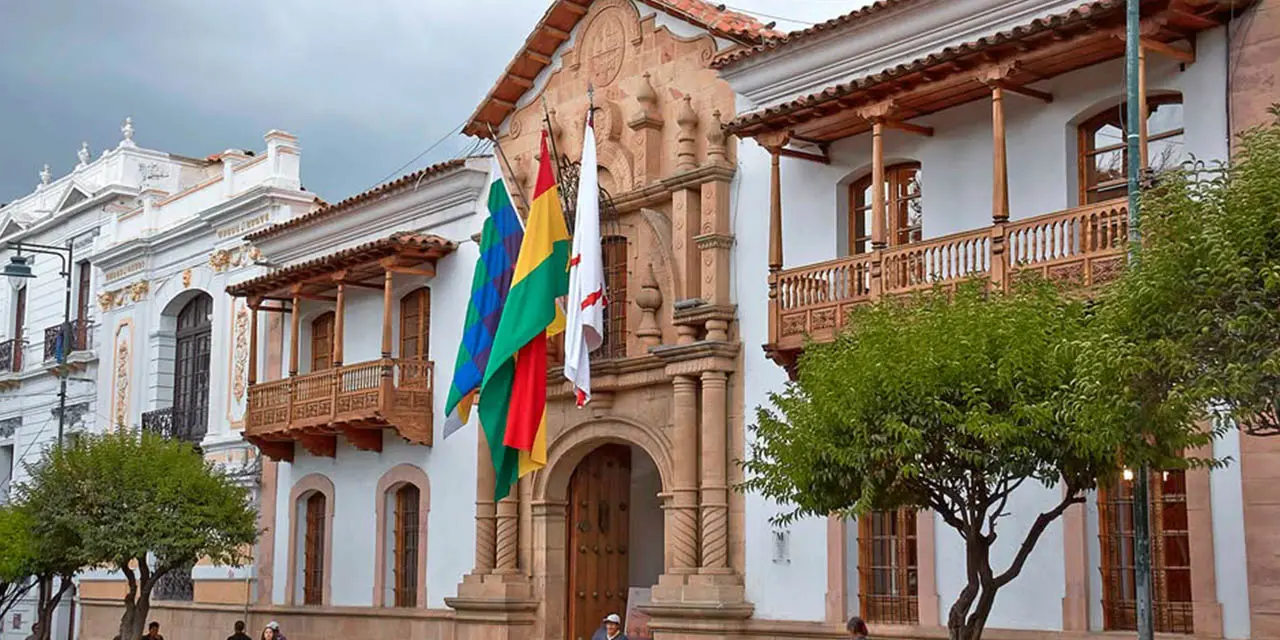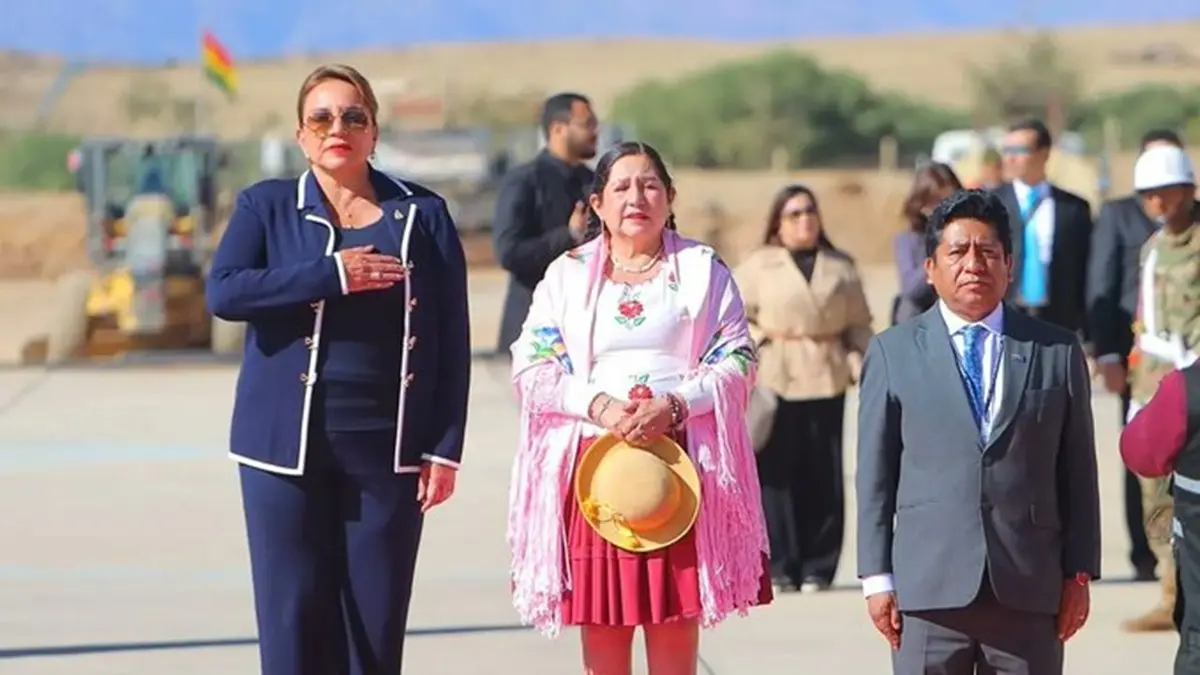Bolivians Pay Tribute to Juana Azurduy on the Bicentennial of Independence

Monument to Juana Azurduy in Sucre, Bolivia, Aug. 4, 2025.
August 5, 2025 Hour: 8:01 am
She led guerrilla fighters in various regions, becoming a symbol of popular resistance against the colonial rule.
On Wednesday, Aug. 6, Bolivia will celebrate 200 years of independence from the Spanish Empire. As part of the festivities, President Luis Arce unveiled a monument honoring heroine Juana Azurduy.
RELATED:
Bicentennial of Bolivia: Self-Determination as a Pillar in the Multipolar World
“This bicentennial invites us to reflect on our history with deep pride and to look to the future with renewed hope,” Arce said during the inauguration of the statue, located at the 25 de Mayo Square in Sucre— the city where the first call for freedom was made in 1809.
Born in the region then known as Alto Peru, Azurduy defied traditional gender roles by actively joining the armed struggle against Spanish colonial rule. Alongside her husband, Manuel Padilla, she organized and led guerrilla fighters in various regions, especially in the Chuquisaca area, becoming a symbol of popular resistance.
Her knowledge of the land and strategic prowess allowed her to effectively command hundreds of Indigenous and peasant fighters. Her leadership was even recognized by Simon Bolivar, who promoted her to the rank of lieutenant colonel. Azurduy embodied the alliance among Creoles, mestizos and Indigenous people in the fight for liberation, and her active participation challenged both colonial power and patriarchal structures of the time.
Despite her significant contributions, Azurduy was marginalized after independence and died in poverty. Today, however, she is recognized as a national heroine of Bolivia and a Latin American symbol of the struggle for social justice and gender equality. Her life stands as a testament to the courage and determination of those who fought for a free and sovereign homeland.
As part of the bicentennial celebrations, the Arce administration introduced commemorative banknotes and coins featuring historical independence figures, and released a book titled “History of Bolivia on Its Bicentennial,” intended to strengthen collective memory.
In Sucre, authorities also opened the “Bicentennial Market: From Producer to Consumer” — an initiative designed to create direct connections between farmers and residents, promoting local development and community integration.
History also made its way to the big screen. The documentary series “Stories of Freedom,” directed by filmmaker Jorge Sanjines, premiered, recounting key episodes in Bolivia’s struggle for independence.
The celebration brought together international dignitaries, including Ecuadorian Vice President Maria Jose Pinto and the presidents of Honduras, Xiomara Castro; Paraguay, Santiago Peña; and Chile, Gabriel Boric.
“We are pleased to welcome to the historic city of Sucre, birthplace of our revolution, our sister President of Honduras, Xiomara Castro, with whom we share important political and ideological values in support of inclusion, democracy and social justice for our Americas,” Arce said on social media.
“We reaffirm our historic bonds of friendship and mutual cooperation, and thanked her for the affection she has always shown the Bolivian people, who now welcome her with open arms to our bicentennial festivities,” he added.
teleSUR/ JF
Sources: LuchoxBolivia – teleSUR



